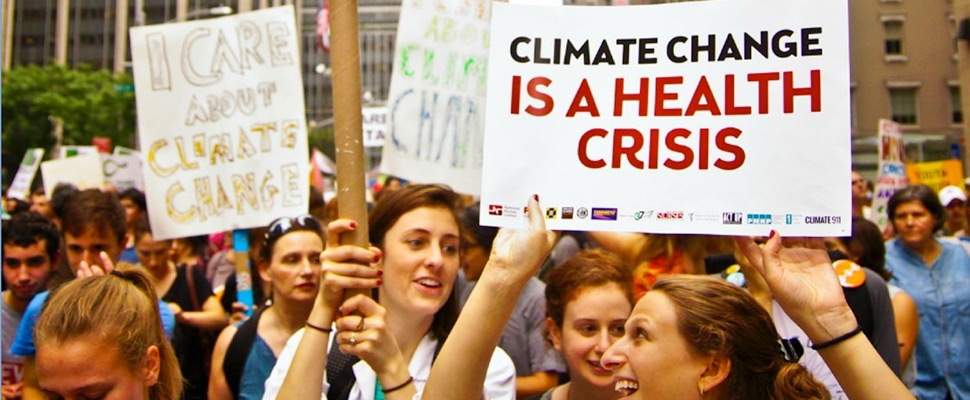Focusing on the intersection of climate change and health, it is imperative to delve
into the profound impact these intertwined challenges have on vulnerable
populations, particularly women. This article aims to shed light on the intricate
relationship between climate change and health and the pivotal role played by the
Women Peace Climate Resilience Association (WoPCAA) in promoting sustainability
and building resilience among women.
Climate Change and Health Nexus:
Climate change is no longer a distant threat but a pressing reality affecting the health
of communities worldwide. The rise in temperatures, extreme weather events, and
ecosystem disruptions contribute to myriad health challenges. The health
implications are substantial, from the increased prevalence of vector-borne diseases
to the threat of food and water insecurity.
Gendered Impacts:
Yet, the impacts are not uniform. Women, often marginalized by socio-cultural roles
and economic vulnerabilities, face disproportionate health risks. The intersectionality
of gender and climate change exacerbates existing inequalities, making women
more susceptible to the adverse health effects stemming from environmental shifts.
WOPCAA’s Mission and Approach:
In the face of this complex scenario, organizations like WoPCAA play a vital role in
addressing the multifaceted challenges of climate change and health. WoPCAA’s
mission revolves around harnessing the collective expertise of women to catalyze
innovative climate actions and build resilient communities.
Community Engagement and Education:
One of WoPCAA’s core strategies involves community engagement and education.
By empowering women with knowledge and skills, WoPCAA endeavors to create a
grassroots movement capable of mitigating health risks associated with climate
change. Awareness programs, workshops, and skill-building initiatives are integral
components of this approach.
Policy Advocacy:
WoPCAA is not confined to grassroots efforts alone. The organization actively
advocates for gender-inclusive climate and health policies at local, national, and
international levels. By influencing policy frameworks, WoPCAA strives to create an
environment that supports the health and resilience of women in the face of
changing climatic conditions.
Case Studies and Success Stories:
The impact of WoPCAA’s initiatives becomes evident when examining specific case
studies and success stories. Communities where WoPCAA has intervened
showcase improved health outcomes, enhanced resilience, and sustainable
practices. From agroforestry projects to community-driven health initiatives, these
examples highlight the tangible difference made by targeted efforts.
Conclusion:
As we navigate the complex web of climate change and health, it is crucial to
recognize the interconnectedness of these challenges. Women, often the most
affected, emerge as powerful agents of change when provided with the right tools
and opportunities. The Women Peace Climate Resilience Association exemplifies
how a concerted effort focused on empowering women can contribute to climate
resilience, improved health outcomes, and sustainable communities.
CALL TO ACTION:
The path to a resilient future necessitates collaboration, heightened awareness, and
gender-sensitive approaches. WoPCAA is actively seeking like-minded organizations
to join forces in realizing a vision for Africa where women are empowered to lead
climate action. By harnessing the collective expertise of women, we aim to catalyze
innovative climate actions that will shape a more sustainable and equitable future.
Together, we can witness the transformative potential that lies in empowering
women. By nurturing this path, we can build climate resilience, promote health
equity, and lay the foundation for a sustainable tomorrow.
Join hands with WoPCAA in this impactful journey towards a future where women
play a central role in shaping a climate-resilient and sustainable Africa. Together, we
can make a lasting and positive impact on our communities and the planet.

